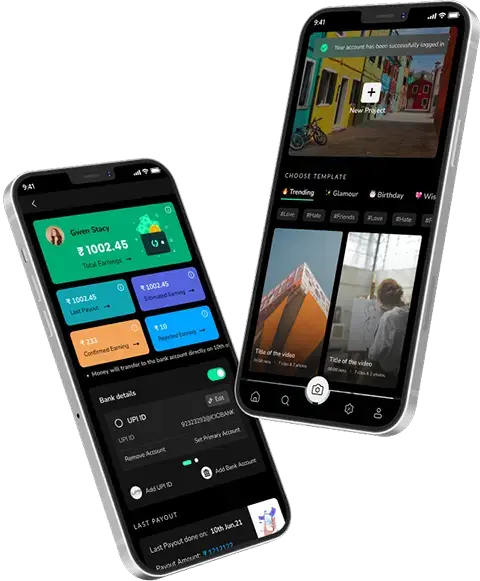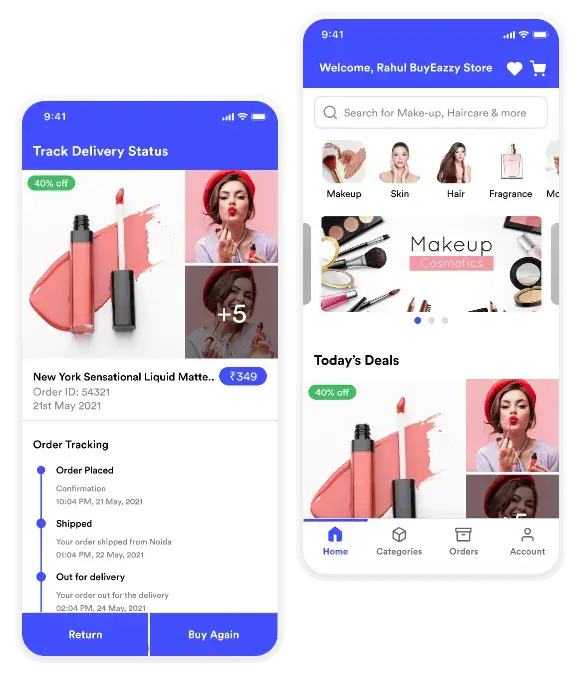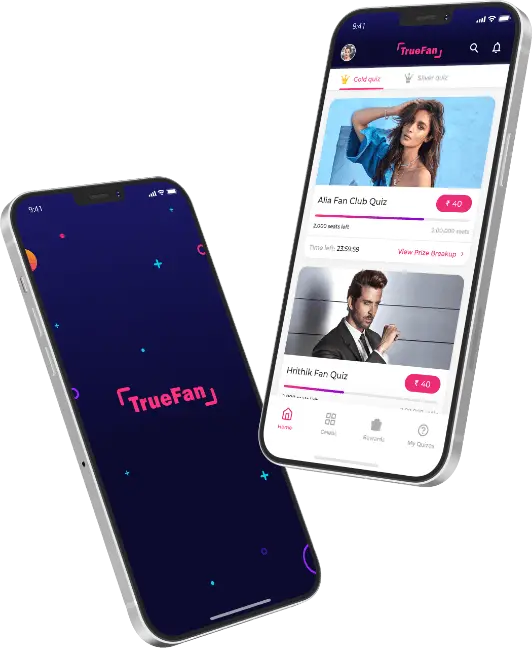Artificial intelligence commonly referred to as AI is today a pervasive tool of change in today’s technologically driven world. It is impossible not to mention the sports industry as one of the most illuminated fields that have become revolutionized by the usage of artificial intelligence. Being team affairs characterized by skill, agility, and the ability to respond to changing circumstances, sports have thus entered the age of the AI revolution. AI is complex and can be considered as being widely used in improving the performance of athletes and changing the user experience. This is in a report, which reveals projections showing that the AI market in sports alone is expected to reach as high as $19. 2 billion by 2030.

This blog bravely sets off on a quest for knowledge to find out how self-learning programmes change strategies, training, performance and the essence of sporting events. Beginning from data analytics to the use of a virtual reality environment, sports as been prepared for a revolution with AI as the new frontier.

Possible Directions that AI can take in the Improving the Athletic Performance and Training
The use of AI in sports has brought a huge change in the practice and even competition by athletes. The driving force of this process is to use AI and predictive modelling as the main tools, which have changed the definition of athletic performance and protective measures significantly.
Also Read : Decoding the Dynamics: Is RPA a part of AI?
-
Data analysis and forecasting in playing style and preventive measures against injuries
The use of AI technology in the aspect of predictive modelling offers a new face to athlete performance tracking and injury forecasting. AI programs can nowadays analyze extensive amounts of data concerning player skills, injuries, and disciplinary records to predict possible hazards and future performance. This is the reason why these predictive models are very helpful particularly to coaches and sports strategists since they give a guideline on how to train or how to program their game plan aiming at minimizing physical injuries and at the same time enhancing the performance of the definite player on the field. The result is direct and efficient management software development of athletes in which all decisions made are well informed by the outcome of an analysis.
-
Smart Wearables and Real Time Tracking Applications
To support the outcomes from the predictive models there is a portfolio of devices such as AI fitness trackers and smartwatches that gather important information on the players’ movements, biomechanics and physical exertion. This real-time information is a constant stream of an athlete’s condition which can be used to quickly adapt training plans and tactics to avoid strain and physical harm.
Also Read : How to Develop an App like MyFitnesspal?
-
Applicants in Major Sports Leagues
In basketball, tools related to scouting and performance analysis are used in the NBA, meaning that the game’s dynamics are already starting to be explored using artificial intelligence. The NFL engages in the use of AI to review deposited games and improve players’ strategies and fitness levels.

Application of Artificial Intelligence in Novelty in Equipment and Strategies in Sports
AI is not restricted to the efficiency of players or their training schedules but spills over to sports equipment and methods.
-
Innovations in the production of smart sports equipment
The use of AI for body wear or sports equipment like smart soccer balls is embedded with sensors and intelligence algorithms which give results like possible growth trajectory, the spin it has acquired force and that enables coaches to have a good rehearsal of what the player is experiencing on the playing field. Likewise, AI-incorporated tennis rackets process the features of the player’s perspective, hit impact location, and the tilt of spin, with recommendations on how the player might gain optimal shot strength and efficiency.
-
Effect on the Performance of the Athletes and Training Regimes
Adaptive sports equipment offers the athlete accurate information about the responses of the equipment to the athlete’s actions, thus allowing the athlete to adapt their behaviour about the equipment. A level of analysis of such specificity was not possible before with the use of conventional equipment. AI implies knowledge to the trainers and coaches as it comes with information that can be used to adopt better training techniques, determine certain significant regions which require more attention, create training sessions that target these areas, and assess the advancement in training practically.

How has AI affected the Fans’ Experience and Engagement
The rapidly growing digital realm within the sports industry will see AI intertwine itself with the fan experience. The dipping of fans’ engagement through the introduction of Innovative latest Technologies, such as; AI-Tech VR and AR, chatbots and personalized content redefine how fans engage with their preferred sports and teams.
Fan Experience in the Future through the Use of AI-Driven VR/AR and Chatbots
Thus, the future of being a sports fan is set to become more engaging with the help of AI advancements in VR and AR. It’s like being rigged up with a VR headset; a fan and finding oneself sitting in an NBA basketball game or standing next to the most favoured athletes in a football game. The following technologies have the potential to close the gap between fans and live-action regardless of where they are. Any fan could watch the game via a 360-degree view and switch to a new camera angle when necessary; he could also be supplied with individual player statistics and analysis in real-time update.
Also Read : Healthcare Chatbots: Promising a Patient Care Industry Transformation or a Failure?
AI in the guise of chatbots for the fans offer them constant feed updates, statistics and relevant recommendations according to their interests and their respective previous activity, thus developing a stronger community of loyal overdosed fans.

Examples of AI in Improving the Fans
During the FIFA World Cup 2022, the FIFA+ fantasy app development incorporated the use of AI in the delivery of features to the app users. With the help of their smartphones, fans can look at additional relevant details about the players, hundreds of other statistics, as well as heat maps to expand their understanding of the match. Wimbledon integrating with IBM’s Watson in a relatively short time was able to produce highlights of matches which were filtered based on the reactions of the players and cheers of the audiences thus guaranteeing fans got to consume content that they would find interesting.
Legal and Ethical Implication of Artificial Intelligence in Sports
One of the most significant and foreseeable outcomes of the proteinase of AI in the sports sector is dedicated to the processes of considering the attached ethical and pragmatic concerns. That is why it is necessary to raise awareness about these problems in a way to contributes to the correct and unbiased application of artificial intelligence trends in sports.
Data Privacy and Bias Incorporated in Artificial Intelligence
This is why data privacy is one of the major ethical issues of using artificial intelligence in sports. Due to the nature of the AI systems, it is imperative that significant amounts of personal data from athletes, such as health and performance data, needs to be collected and analyzed. Protein folding and the structural modulations they undergo can be regarded as an intricate type of ‘molecular cryptology’; thus, it is necessary to safeguard this kind of information against breaches and unauthorized access. It also means that athletes should not be taken by surprise by the kind of data that is being collected and how it is going to be utilized.

Moderation in Artificial Intelligence in the Governance and Regulation in the Industry of Sporting Activities
It, thus, calls for the setting of some best practices that act as a guideline in conducting the collection, use, and protection of data. There is a need for the query of operations and decisions of AI systems where such decisions will affect individual athletes’ ability, assessment of their performance, and treatment of their injuries. The number and variety of identifiable training data minimize the prejudice that comes with being innate. Fair and ethical practices in sports can be only achieved by conducting a bias and/or ethical assessments/audits regularly to ensure that teams and athletes meet the standards set for them or do not violate the rules. Government Regulators should engage the ICT specialists in setting up of sustainable and elastic legal frameworks protecting all the four corners of the tetrad.
The Advancements in Artificial Intelligence and its Use in Sports
The future trends discuss the integration of AR/VR in sports which is also assumed to go to a further level than what is currently being seen. Consider fans playing games right through the eyes of an athlete analyzing match dynamics or playing back from the comfort of their homes. Its benefits concerning performance research will include increased accuracy in anticipation of players’ careers, game strategies, and the impact of injuries that will, in turn, improve the understanding of team behaviour under different circumstances.

AI in Sports: That Is How They Reinvent Performance, Engagement, and the Innovations of the Future
Hence, AI is relevant shortly, particularly in the context of the sports business, owing to its capability to handle massive amounts of data. This capability is very useful for predictive models, Custom experiences, and Optimizations. In sports, AI is already capable of identifying the performance of the athletes, if there are potential injuries which are likely to occur and the suitable training plans to be given to the athletes that will improve the performance and reduce the frequency of injuries.
The implementation of AI is revolutionizing the interaction of fans by developing new ideas with the use of VR/AR and making content more personalized. Games have become more observable to the fans, almost bringing the fan into the middle of the sports betting app events in terms of seeing the games from different angles, receiving tune updates, and even interacting with the games to an extent that was almost inconceivable in the past.
Furthermore, when it comes to social and practical dispositions, AI deals with ethical questions such as privacy of data, avoidance of bias, and explainability of the decisions made. In light of the future advancement of technology, it is self-evident that the use of AI will also assume the increasingly important role of encouraging innovation and enhancing productivity and problem-solving capabilities. The sports industry with its inherent characteristic of being highly kinetic and requiring human skill and the element of surprise in competitive fields would immensely benefit from AI integration making us look forward to a future wherein technology and human strength meet in the field to enhance results as well as spectators’ interest.
Also Read : AR, VR & AI- Technologies Behind Transformation Of Restaurant Industry

Building Your Sports App on A Tight Budget
An app development company in UK is developing a new application in the field of sports that involves artificial intelligence is rather an innovative approach to unfolding the potential for improving athletes’ performance or fans’ experience, or redefining key training strategies. Still, controlling the process of development at a certain limit of the budget is a vital need for many start-ups and other small organizations. Here are some strategies to develop your app cost-effectively:
1. The end goal is to define clear objectives and features for the organization
- Prioritize Features: List the things that your app has to do. The minimum functionality must include Live Tracking, Analytics and simple interactions with fans. Other features can be incorporated in the next versions.
- MVP Approach: Build a Minimum Viable Product (MVP) to get on the market fast and include user feedback. It enables you to enhance the app following the actual consumer demand and prevent extra costs in aspects that may not be utilized.
2. Leverage Existing Technologies
- Use Open-Source Libraries: There are numerous libraries and frameworks based on open source that can be useful in reducing time and overall expenditure. These can be used for artificial intelligence, data analysis parts, and user interactive parts.
- Third-Party APIs: Outsource low-level features such as chatbots, VR/AR cinemas, and data analysis as APIs that can be instated into the application rather than from scratch developments.
Also Read : The Future of Sports App Development: What to Expect in the Coming Years?
3. Cost-Effective Development Team
- Outsource Development: Recently there have been proposals to outsource to countries with lower development costs. Prospective clients can always outsource freelancers or development firms derived from Eastern Europe, India, or even Southeast Asia where the cost is relatively cheaper, but the services are just as good.
- In-House vs. Outsourced: This is being done while at the same time ensuring a proper balance between outsourcing and internal development. It is possible to split the management of the application and its data into areas that are critical to the organization’s internal processes and core competencies or, on the contrary, is it possible to outsource these functions and focus only on critical business processes or those data that should be securely isolated from the outside world.
4. Iterative Development and Testing
- Agile Methodology: Develop the app using the Agile development methodologies when developing and testing the app. This method is flexible and can be improved upon continually thus the chances of having to spend a lot of money on unproven elements are low.
- User Feedback: Collect user feedback from time to time to help the organization identify features which require improvement or new features to be added without going through the process of development at a very costly price.
5. Efficient Project Management
- Project Management Tools: To maintain the tasks, schedule, and discussions use such tools as Trello, Asana, or Jira. They include such as help to prevent project deviation and extra spending.
- Regular Audits: Always perform financial analyses on the project to know the costs in case there is a need for extra charges.
6. Marketing and Monetization Strategies
- Cost-Effective Marketing: Save money on advertising and harness the power of word-of-mouth and partnerships with influencers which matter a lot for app exposure even if you have a small marketing budget. Organic growth is another form of application growth that can be achieved by surrounding your application by forming a community to cater for the needs of the application users.
- Monetization: You should think about how you’re going to monetize your video marketing project from the very start. To have a steady income, the developers should sell in-game items, use paid subscriptions, display advertisements, or partner with sports organizations.
7. Collaboration with Experts
Partner with Techugo: In this way engaged with a mobile app development company in London service provider can be successful in managing your budget in a more efficient way like Techugo. Techugo provides customized services which means they would be able to create the best sports application for you while working under your financial capability.

Hiring Techugo for services in AI in Sports
Thus, for all those who want to create AI applications for sports, collaborating with a competent partner like Techugo will become a turning point. Thus, Techugo focuses on commonly neglected aspects and corporate initiatives that involve the use of artificial intelligence in improving athletes’ training and performances, increasing fan involvement, advancing the existing training strategies, and implementing efficient processes of treatment and prevention of injuries. We invite you to let Techugo be the best sports app development company which assist you in developing a sports app that gives maximum benefits of AI analytics to the athletes, trainers, coaches, and fans.

Wrapping Up
Technology spearheaded by Artificial intelligence app development and its application in predictive modelling is thriving to disrupt athlete training and performance, making it more automated, more effective, more evidence-based, and more protective for athletes. Personalized sports consumables like smart soccer balls, tennis rackets, and smart shoes are an integration of traditional sports material with technologies making athletes perform better and improving their training. The VR/AR, chatbots, and use of personalized content in the form of artificial intelligence have transformed fan engagement in sports.
Also Read : How does an Artificial Intelligence App add Great Potential to your Business?
Some of these aspects include data privacy concerns and bias, as well as the tasks related to the necessity to achieve a balance in the development of regulation and governing the application of AI in the sphere of sports. It is expected that in the future, owing to the development of technology, the advanced use of AI in sports will become pervasive even in minor areas providing incredible new perspectives. Thus, the story of AI in sports is still in its infancy and the opportunities for the development of this industry can be infinite.
Post Views: 1,592




 SA
SA
 KW
KW
 IE
IE AU
AU UAE
UAE UK
UK USA
USA
 CA
CA DE
DE
 QA
QA ZA
ZA
 BH
BH NL
NL
 MU
MU FR
FR



































